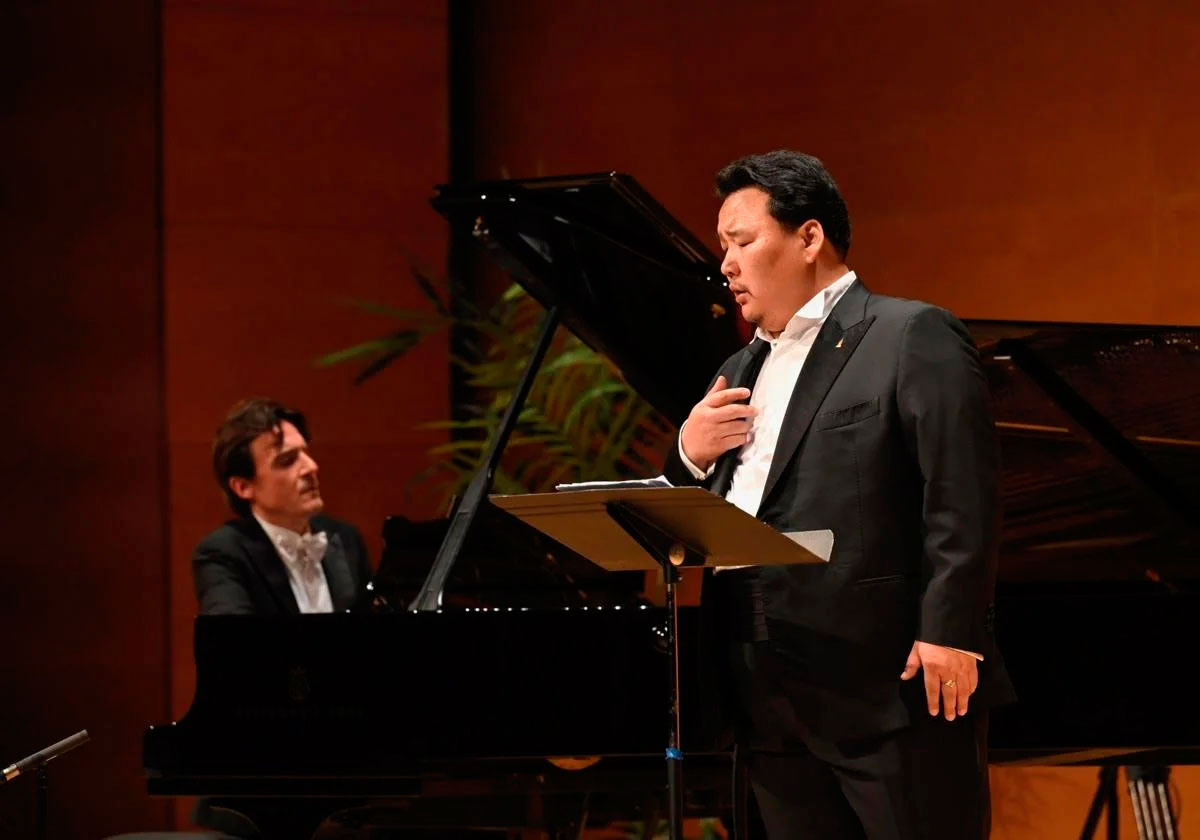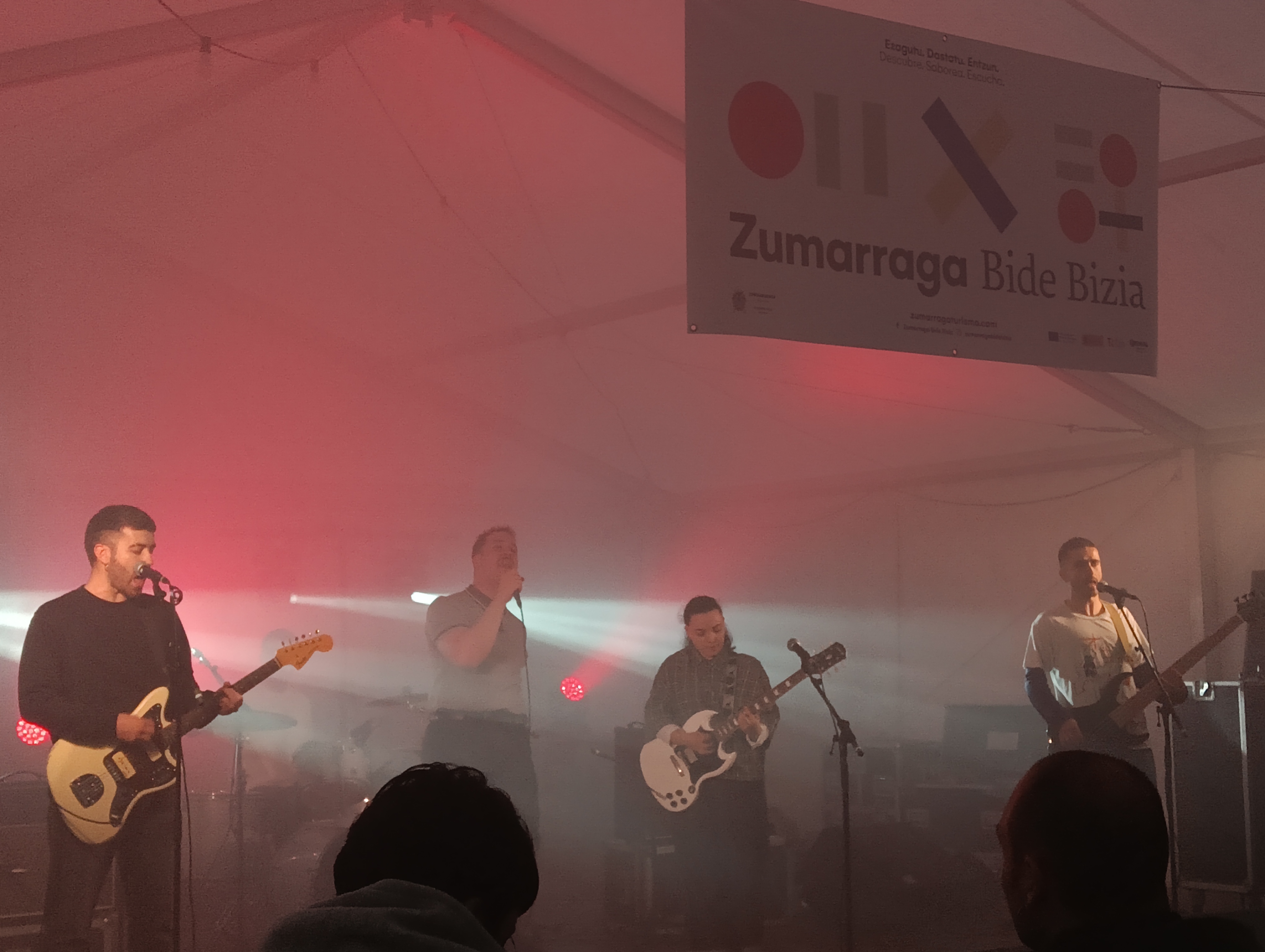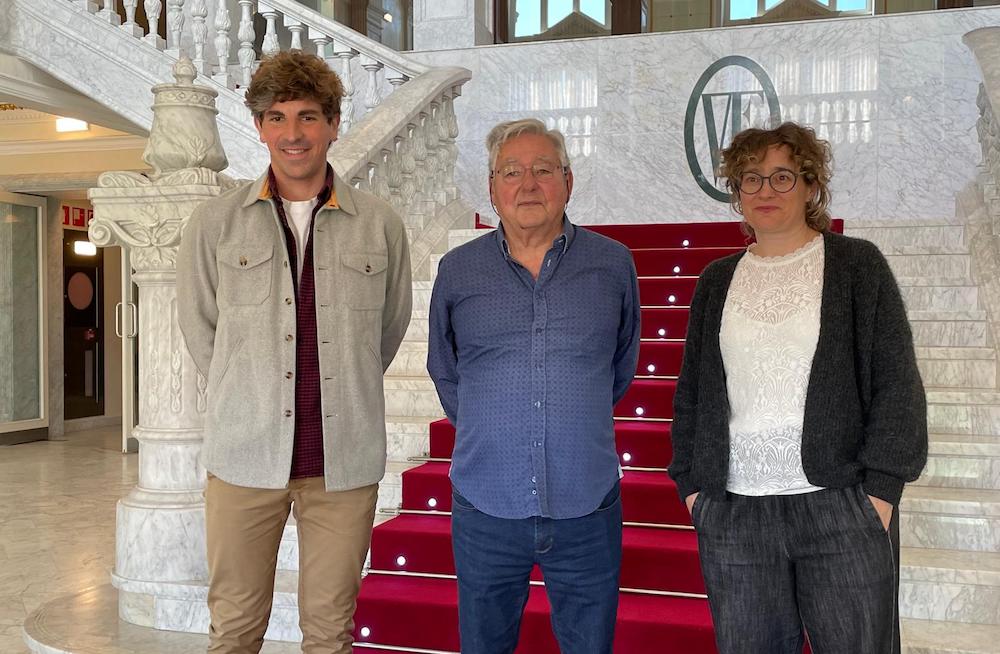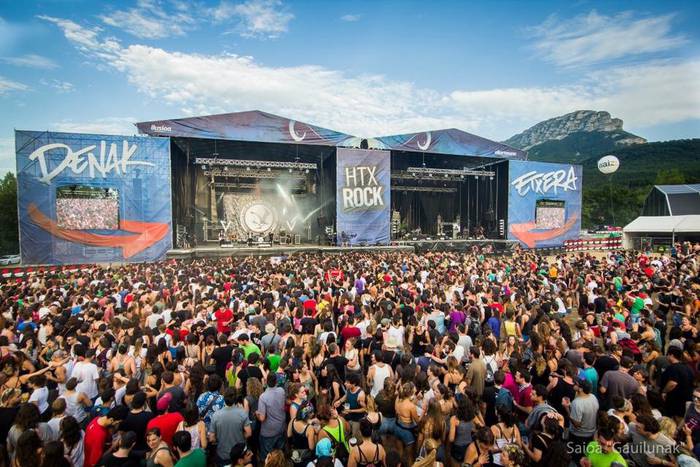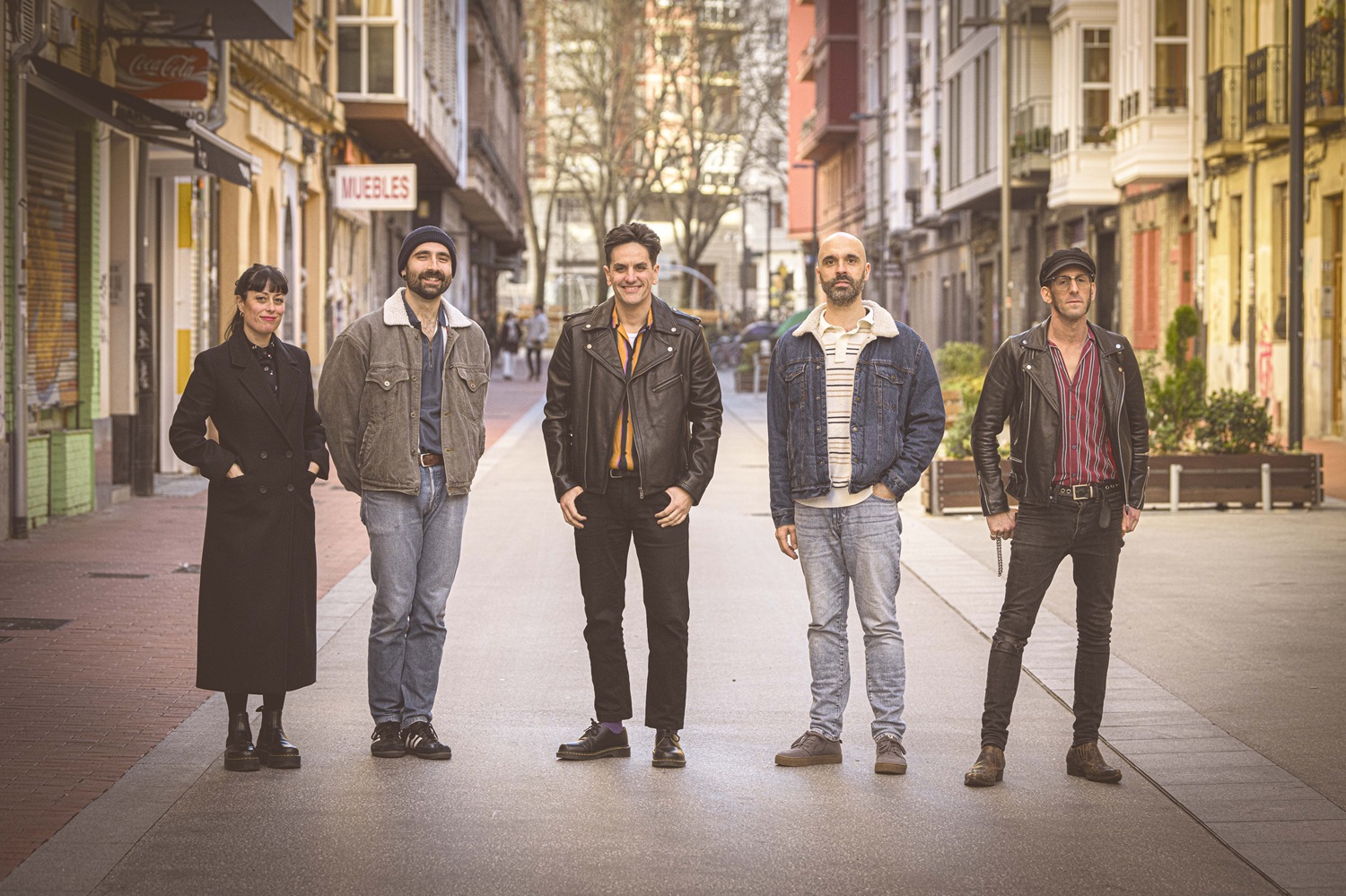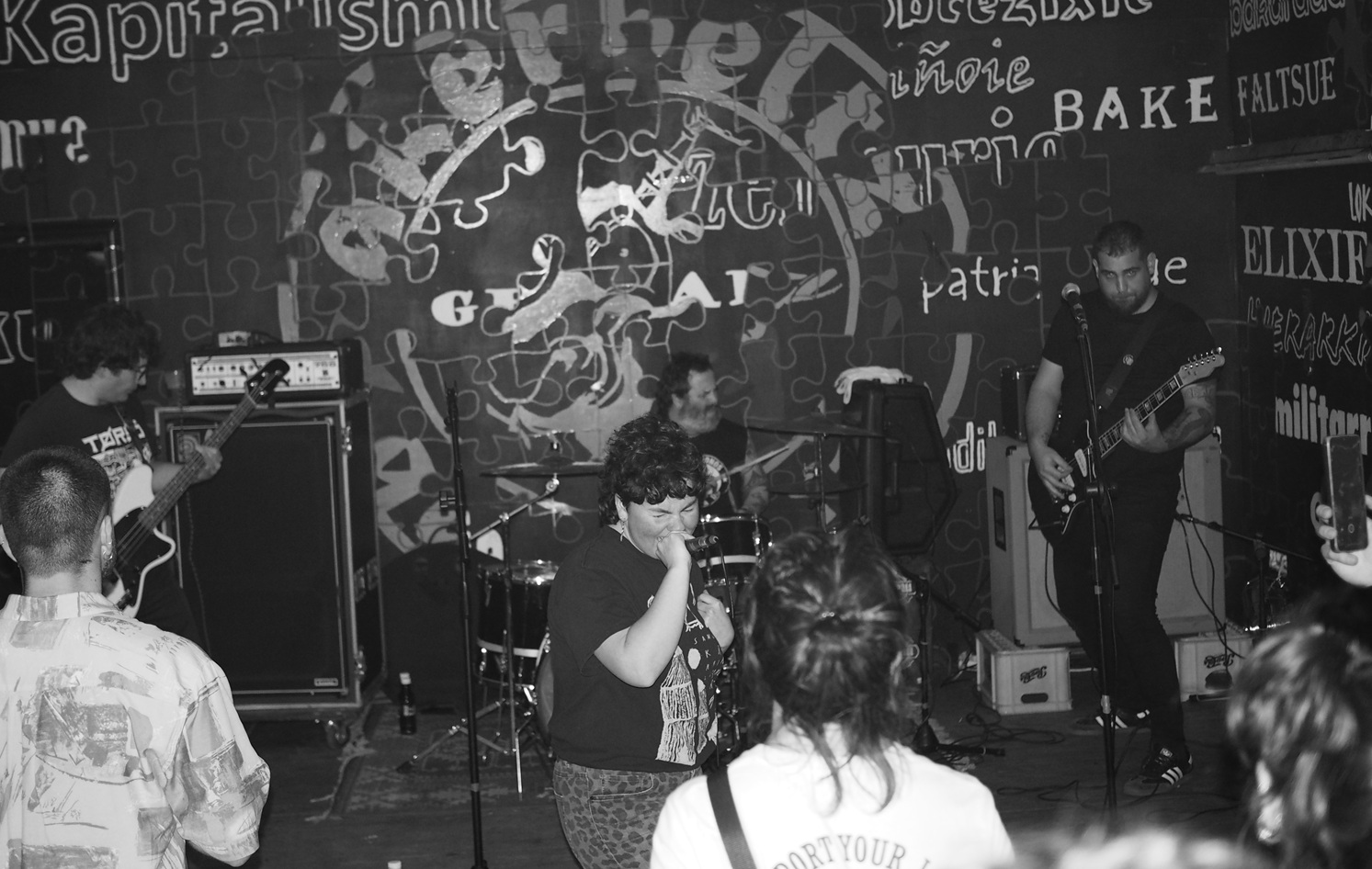"I like to explore things without knowing where I'm going to go."
- When I asked him to show up, Leo Bueriberi tells me he's a dwarf, and he's also noticed that it's very difficult to stand still to sit in the chair. In three quarters of an hour we have dealt with eleven topics, radio, music, activism... And how many more would be left out!

Leo Bueriberi. Malabo, Northern Bio, 1998
Leo Bueriberi is a vitorian who is dedicated to putting music under the name of DJ Eromena, likes analogue photography, participates in the program O will not be / Will not be, collaborates in the sessions of Zulora (Hiru Damatxo) and Piztu TB (ETB1) with his friends Kora and Maroa. She is a member of the Network of Migrated and Racialized Women*. In this interview we have not had time to work their views on queity and sexual and gender dissidence, but if you are interested you can go to the interview they did in the Bizi project.
First of all, would you introduce
yourself?The question seems easy… I am Leo, young, dissident, restless, music enthusiast, an artist who tries to do everything.
I knew you as a DJ Eromena, but I saw you in a video singing with the MICE group in the gaztetxe of Vitoria.
I had a great time. The MICE had a concert, then I had to put music, and they asked me if I would be encouraged to sing a song. I'm very cool at MICE, and because I knew a couple of songs, we chose one, we rehearsed once, and we moved forward. Despite knowing the song, I got nervous, and at one point I forgot the lyrics, and I thought, "Well, you won't notice anyone," and there's just a piece of video that shows that moment!
Do you like to try things?
Yes, I lost shame long ago. I move from one thing to another, testing myself, and although I talk about other very different things, it serves me one to another. I'm linking knowledge.
That is how we have been quoted in the Bedi bar. What does it have to do with radio?
Or it won't be / It won't be the program I'm in, in the feminist radio program, we take turns in various groups to make programs. I participate in the program as a member of the Network of Migrated and Racialized Women*. It is broadcast on Mondays at ten and a half in the evening. Some sessions are in Spanish and others in Basque. I have also collaborated in the Pasarela and in Hizaldiak.
Hala Bedi turns 40, not an easy challenge. From the outside you see the project with great admiration, what space has been for you?
I believe that politically it is a quite interesting space, and maintaining such a project for so long is the work and struggle of the Christ. In the end, we are more than a hundred people militating, there are many programs and there are programs that have been going on for 20 years. I believe that as an alternative means of communication it is quite useful to have these spaces, on the one hand you can have things or debates that we do not hear in some media, and on the other hand the space is quite open. People come together from different groups and it's a good opportunity to get closer to the radio: you don't have to study broadcasting, you can trip there. It's a medium you have near you. In addition, it has been broadened; in principle it started as a radio, then there is the writing, the section Hala Video… I think it is a reference in Álava. And you're noticing the generational shift, how they're progressively incorporating new approaches.
.jpg)
Today you've come to our DJ team meeting. How did he start making music? I'm a
pretty impulsive person, and I would say I'm totalist. I really wanted to put music, and it started like a nonsense. I realized that in November last year I was having coffee and I realized that I had been thinking about it for some time now, and right there was the Infrastructure Bibiana, and she said, "Hey, if you want to paint here next month." I said yes, I bought the table and thought, “I already have a month, I will learn everything I can and with that go.”
No scare.
If not, when? If I don't have a very polarized thought: either I don't, or I have to make it perfect and I have to go to academia DJ, study everything from scratch ... I like action. So I started seeing tutorials.
"I play hip hop music, assonto, amapiano, afrobeats, dancehall, afropop, r&b, funk carioca…, sometimes mixing it with electronic sounds"
That had to ask him, how did he learn?
YouTube. I went into a course, but it was several videos, and I can't see five videos, even if it's two minutes, I can't get to the end. I want to watch and try the first video. In the end you have to do what you see, how you bother, what you like, and I really like music, I go to a site and I know half the songs. Painting is like making my party: putting my favorite playlist, passing me better than others…
What kind of music do you
put?Hip hop, assonto, amapiano, afrobeats, dancehall, afropop, r&b, carioca funk…; sometimes mixed with electronic sounds. In the end, this learning process is not just training with the table, but seeing myself in those spaces, to see how it goes.
This year I have had a good opportunity to play in different contexts: it is not the same to play in a vermouth, at six in the afternoon in a market or at two in the evening in a gaztetxe. Seeing myself in these situations, managing anxiety and pressure has been a nice exercise for me.
Do you have a day that you remember especially for some reason, good or bad?
Good or bad… There have been moments of stress. As far as possible, I'm going with a friend, but normally only, that's when the DJ session starts, that some cable is wrong, that it's bad, and that's just as much as losing half an hour in search of a solution. I have a laptop that's kind of annoyed, it heats up a stack of me, and once at the Bizi project party on the Bilbao Lap, I had to shut it down three times. So I thought, I will sing Bad Gyal. I took the micro, I told the technician…
What song did you sing?
“Debt.” And singing with me to the audience! I ended up singing a song again. I believe that welcoming also helps, the attitude of the people. Sometimes you’re afraid, how I’m going to do it, the pressure… But I’ve learned that these are direct issues, that problems arise and progress is made.
Creating environment is very important when you put music.
It's been nice because in those DJ plans I'm looking for what I miss: I miss hearing this kind of African music. There are spaces for it, but they're very masculine. For example, in Gina I wouldn't go a little, they're typical sign bars, football and others.
The environment depends on who is on the other side of the stage, and war has been participating in alternative parties, queers parties, feminist parties, people and the environment in them.
I've already seen how you collaborate in Zulora by making pills.
Yes. When you ask me what I do, I answer by month or day. I think I first participated in the pandemic in Zulora, I was interviewed and then offered a collaboration for the following year. This year we will repeat the format, but in some chapters I will do street surveys from Vitoria, asking things. Funny.
"Activism is exhausting. I think there is a demand, and we have to know when to retire, we have to know how to take care of ourselves, and that has to be a priority"
I should now like to ask you about anti-racist activism. You belong to the Network of Migrated and Racialized Women: for those who do not know, what is it?
Created in 2017, it is a feminist, antiracist and decolonial space. It emerged as a non-mixed space, because we saw the need to have these spaces, to make our decisions; in the end, some power dynamics occur in mixed spaces of militancy, and we wanted to avoid them, not only in theory, but also in practice, because things like this have happened. For me, the network is a kind of resistance, a cookie, in the end we don't just join in a political agenda. Some of us are in Vitoria, others in Bilbao, others in Bergara… When we get together we take the day or the weekend, the first hours to greet us and see how we are. It's a surveillance space, even at other levels.
There are women and some dissident people, from different backgrounds, most of South America and some of Africans. Sometimes we do internal activities, others do formations, workshops or open dynamics. And when we have strength, we join other dynamics or calls.
What is your relationship to activism? I heard you in an interview that I wanted to seek balance, because it is also exhausting.
Yes, it's exhausting. I think there is a demand, and we have to know when to retire, we have to know how to take care of ourselves, and that has to be a priority. You can end up smoking, being doing this, holding white people or arguing with white people, and you still need detoxification.
.jpg)
You have organized workshops, among others, on white privilege and the decolonization of desire. What experiences have been gained?
The white privilege workshop, for example, was three sessions. We've done it in short format, but when we did it at the Women's House in Vitoria-Gasteiz, there were three shifts that were quite painful. Even if it's done in feminist spaces, even if it's aimed at feminist women, when in the end people see a white adult man, they don't question anything, and we've been in these situations looking for something and a person on Google if our response was really right.
When I go to those spaces, I'm not going to make friends, I'm super serious: I've come, I'm going to say it clearly, and in some feminist spaces we've been asked to report it with a little more care. Among the white feminists is very normalized smoking, fighting, barricades… But when you’re a racialized person they tell you to be quiet, “things don’t do that”, “you have to have empathy with me”…
It causes itching.
A lot. So lately, we've been doing more workshops for racialized women: we did a radio workshop, for example, and we used to reclaim the genealogies of the referenced racialized women. We worry within the network if we always have to say yes when we are called, why we are going to keep the forces and for whom. So lately we are doing things for racist and migrated women, for example, in the pandemic one of the members is a psychologist and with him we were doing some online sessions.
We see that we cannot reach everything, or we wonder why we should follow the hegemonic agenda. We've realized that even we join that agenda, but when it's the opposite, you won't see the white feminists coming to our calls. Therefore, we may perhaps take our own agenda, of course we will have things in common, but it is already there.
"When I go to those spaces I'm not going to make friends, I'm super serious: I've come, I'm going to say this clearly, and in some feminist spaces we've been asked to report it with a little more care."
I know that to finish you are also interested in photography.
Now I'm a little bit standing, but at first I thought: I'm going to take the analogue camera and I'm going to disrupt it, and it was mostly a matter of portraying my friends, a little black joy that we wanted to see, reasoned people happy, doing things. In addition, my friends were moving in spaces like the audiovisual or the illustration, and I was coming out easily. But well, today will be photography, and tomorrow we don't know. In that search, I like to explore things, I don't care where I'm going to go. With the DJ theme the same, I don't know how long I'm going to be in it, at the moment I like it, I enjoy it and it has also served to prevent depression.
Yes?
When I started, I was just unemployed, and of course in this capitalist system, suddenly I don't know how many hours of work, and suddenly you don't have anything and they ask you what you do. I do nothing. But it's not true. To start, to rest, to take care of yourself, to dedicate yourself to your personal development, that is to do nothing; I am taking care of myself, organizing my life, planning, looking for a place to live, etc. But music was a way to get out of bed, to delude and to move the body. And then my relationship with music, music serves me to regulate a lot of body, to bring emotions, to reach a point of tranquility, to take things out… It has also had a therapeutic value for me. Then I've been learning more and at the moment the obsession is DJ.
What are the challenges for the future?
On December 14, I will be at Donostia’s Dokan booth up probadero with people from the Karkarkar project exploring my monologue facet. I don't know how many times I'm going to do one thing or another, but I want to participate in new projects and see myself in different scenes. I hope to be putting music where they call me, and on the other hand I want to be happy and active doing things, no matter what I do, but with desire, I will enjoy and look for a lot of joy.
BRN + Auzoko eta Sain mendi + Odei + Monsieur le crepe eta Muxker
Zer: Uzta jaia.
Noiz: maiatzaren 2an.
Non: Bilborock aretoan.
---------------------------------------------------------
Ereindako haziek ura, argia eta denbora behar dute ernaltzeko. Naturak berezko ditu... [+]
Amartuvshin Enkhbat baritonoa
Pianoan: Stefano Salvatori.
Antolatzailea: OLBE.
Zer: Verdi, Mascagni, Leoncavallo eta Giordanoren operen ariak.
Non: Bilboko Euskalduna Jauregian.
Noiz: martxoaren 29an.
Aramu + AimarZ
When: April 26.
In which: The Zumarraga Open Field.
---------------------------------------------------------
The website of the City Council says: "The tourist brand Viva Viva and the festival of the same name are designed to show the world the soul of... [+]
Transparent Beings
When: April 20th.
In which: In the Plaza of the Castle of Pamplona.
-----------------------------------------------
The concert is only half an hour away in the Plaza del Castillo de Pamplona; but it is still half empty, because it is raining. Whether... [+]
Obduction of Amenaza / Zirt Zart (Split-ep)
2024
---------------------------------------------------
The musical panorama is gigantic, impassable. Among them there are a few large groups that absorb all the foci; many others that are dedicated to the pursuit of it, and... [+]
Aposapo + Mäte + Daño Dolor
When: April 5th.
In which: In the Youth Center of Markina-Xemein.
---------------------------------------------------------
I’ve made my way to the cheese house with the shopping cart full of vegetables, and we’ve spent the evening cutting... [+]
Poliorkêtês
Kerobia
Autoekoiztua, 2025
--------------------------------------------------------
Azken aldian, lerrootan asko nabil hausnartzen musikak izan beharko lukeen “misio historikoaz” eta abarrez. Eta, nolabait, zer egin beharko lukeen... [+]
On March 7, the 150th anniversary of the birth of Maurice Ravel, the best Basque composer of all time. And in LA LUZ a tribute was paid to this composer, recalling the influence of the famous Bolero on the collective imagination.
By chance, Deutsche Grammophon has just released... [+]









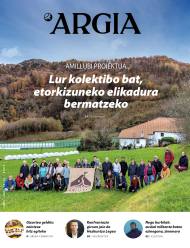


.jpg)

